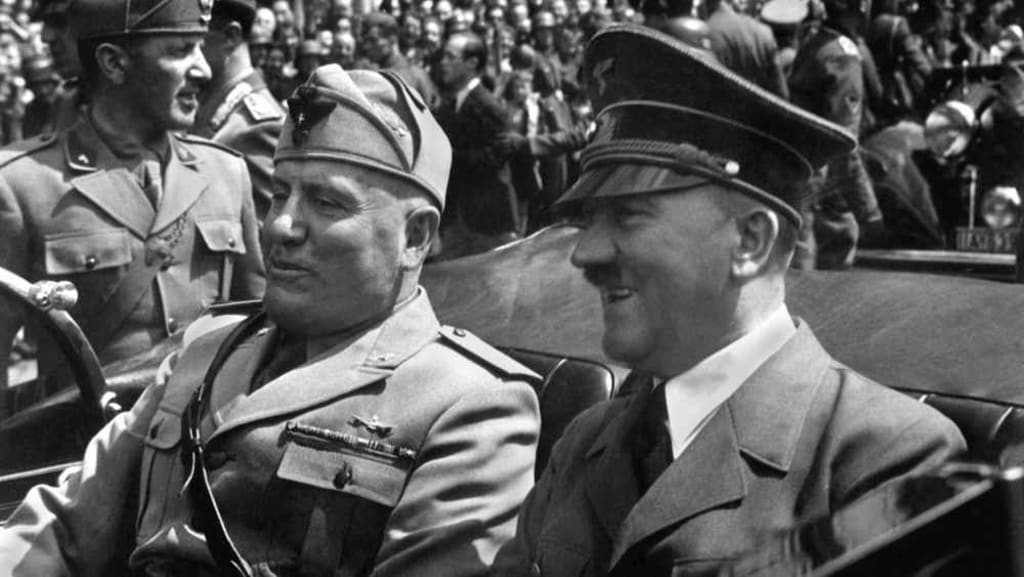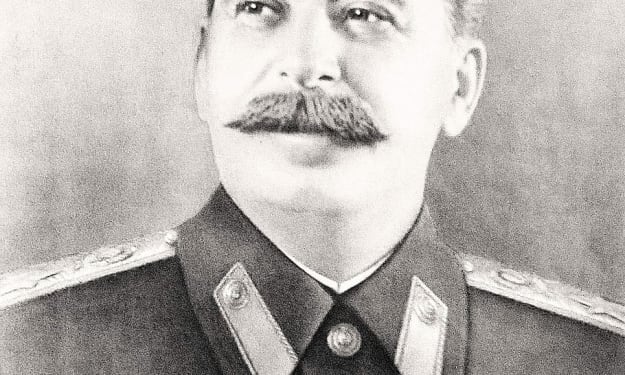Benito Mussolini
legendry Solider

Benito Mussolini was an Italian politician and leader of the National Fascist Party. He was born on July 29, 1883, in Predappio, Italy, and died on April 28, 1945.
Mussolini served as the Prime Minister of Italy from 1922 to 1943, during which he established a fascist dictatorship and aligned Italy with Nazi Germany during World War II. His regime was characterized by authoritarianism, censorship, and the suppression of political opposition.
Mussolini's policies included the creation of a centralized, corporatist state, the promotion of nationalism, and the pursuit of territorial expansionism. He also implemented policies to promote population growth and established the Fascist Youth Movement to indoctrinate young people into fascist ideology.
Mussolini's rule came to an end when Italy was invaded by the Allies in 1943, and he was arrested and imprisoned. He was later rescued by German forces and installed as the leader of the Italian Social Republic, a Nazi puppet state in northern Italy. He was captured by Italian partisans in 1945 and executed by firing squad.
Benito Mussolini was captured by Italian partisans on April 28, 1945, while attempting to flee to Switzerland. He was executed by firing squad the same day, along with his mistress, Clara Petacci.
Mussolini's execution was carried out without trial and has been widely criticized as a violation of due process and the rule of law. However, it is important to note that Mussolini was a dictator who had suppressed political opposition, curtailed civil liberties, and committed numerous human rights violations during his time in power.
While the manner of his death is a controversial issue, it is clear that Mussolini's policies and actions during his tenure as the leader of Italy were responsible for the suffering and deaths of many people, both in Italy and abroad.
Benito Mussolini's personal life was marked by various relationships, both romantic and familial. He was married to his first wife, Ida Dalser, in 1914, but their marriage was annulled in 1915. Mussolini then married Rachele Guidi in 1915, with whom he had five children.
Mussolini also had several affairs throughout his life. He had a relationship with Margherita Sarfatti, a Jewish journalist and art critic who was a major influence on his political views. He also had a relationship with his secretary, Clara Petacci, who was executed alongside him in 1945.
Mussolini's family life was complicated by his political career. His son, Vittorio Mussolini, was a prominent fascist politician and filmmaker, but his daughter, Edda Mussolini, had a strained relationship with her father and opposed his political views. Edda later married Galeazzo Ciano, a high-ranking fascist official, but their relationship deteriorated as Ciano became disillusioned with the regime.
Overall, Mussolini's personal life was marked by various relationships and family conflicts, but his political career and authoritarian rule overshadowed his personal life and left a lasting impact on Italian and world history.
Benito Mussolini's war strategy was largely focused on expanding Italy's territory and influence, which he believed would establish Italy as a great power on the world stage. Mussolini envisioned a "new Roman Empire" that would dominate the Mediterranean and extend Italy's sphere of influence throughout Europe.
To achieve these goals, Mussolini aligned Italy with Nazi Germany and pursued a policy of territorial expansionism, beginning with the invasion of Ethiopia in 1935. He later supported Germany's annexation of Austria and the invasion of Czechoslovakia, and he ultimately joined Germany in World War II.
Mussolini's war strategy was characterized by several key elements. He sought to establish Italy as a dominant naval power in the Mediterranean, with the goal of controlling important shipping lanes and establishing a Mediterranean empire. He also sought to expand Italy's territory through military conquests, with a particular focus on securing control over North Africa.
However, Mussolini's war strategy was ultimately unsuccessful. Italy suffered major military defeats in North Africa, the Balkans, and the Eastern Front, and the country's economy was severely weakened by the war. Mussolini's regime was overthrown in 1943, and Italy switched sides in the war, joining the Allies in their fight against Nazi Germany.





Comments
There are no comments for this story
Be the first to respond and start the conversation.